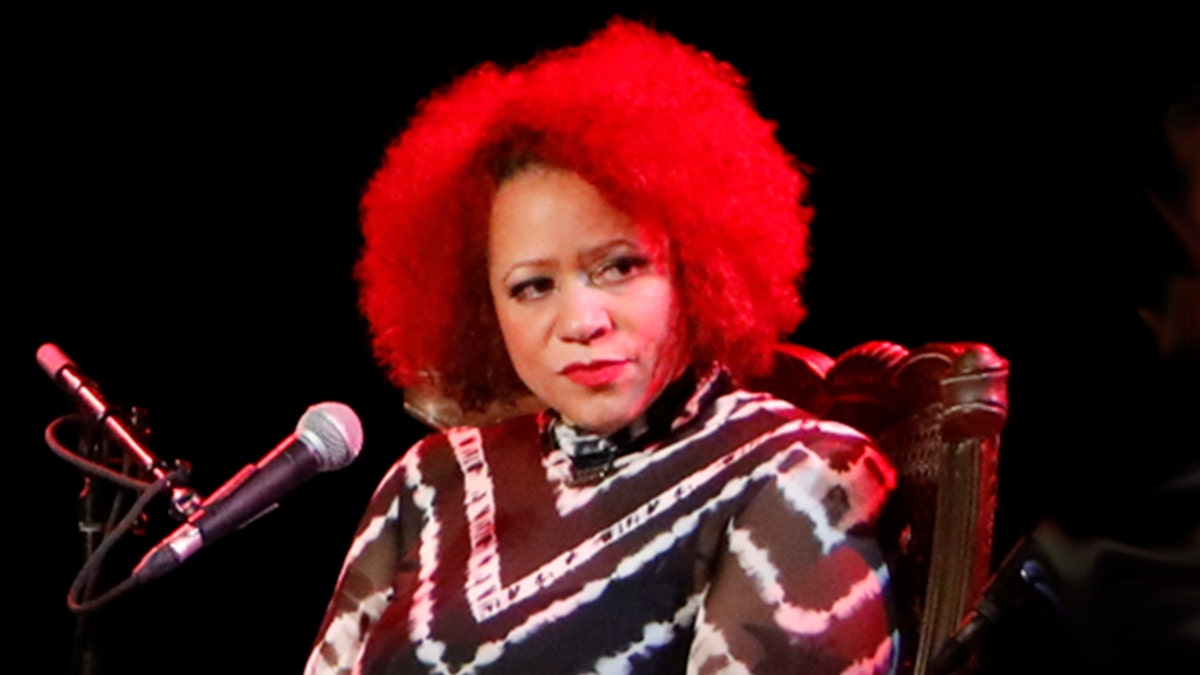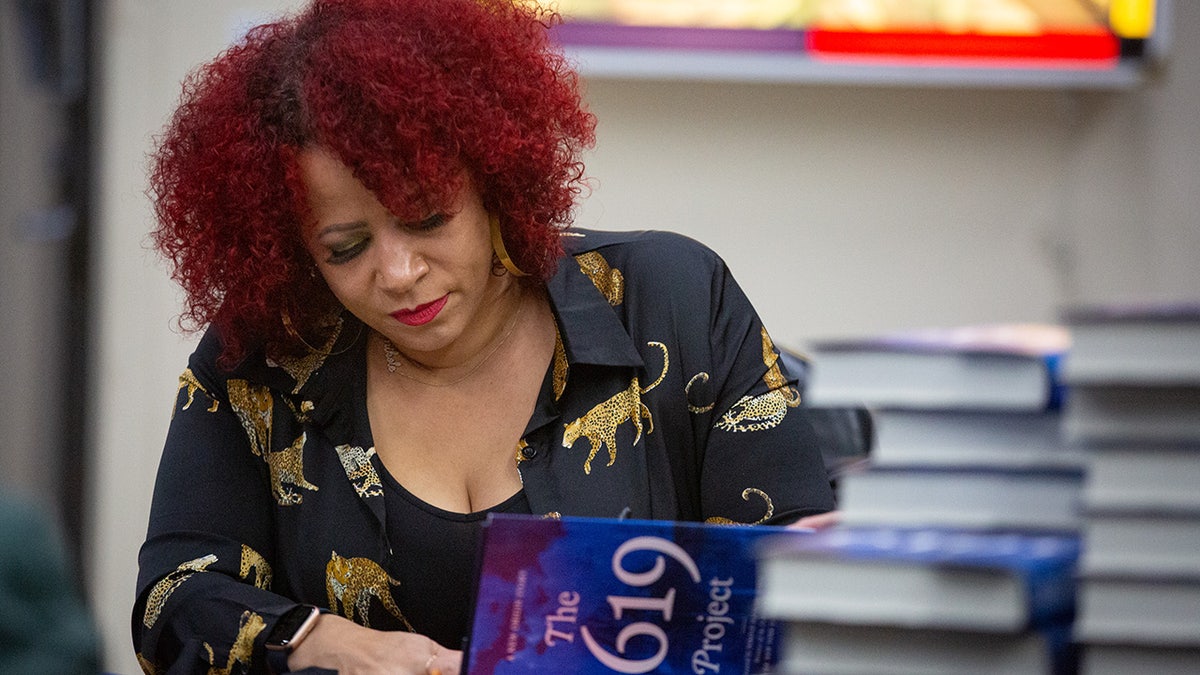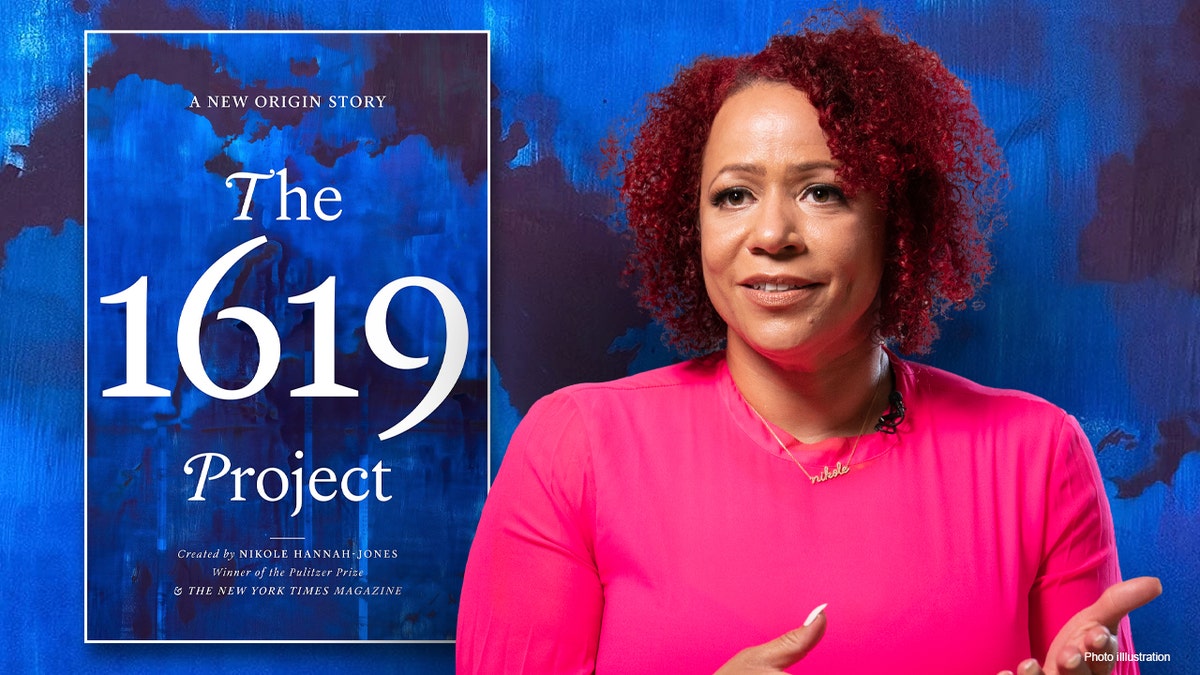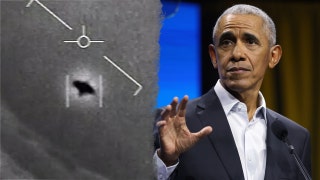Ashley Rindsberg on how liberal media made 1619 Project founder Nikole Hannah-Jones a star
Author and journalist Ashley Rindsberg breaks down how 1619 Project founder Nikole Hannah-Jones became a celebrity journalist.
The controversial 1619 Project is considered credible because the media helped turn New York Times Magazine reporter Nikole Hannah-Jones into a star, according to author Ashley Rindsberg.
"The media really helped Nikole Hannah-Jones be catapulted into this celebrity status, which also and I think this is the bigger point, catapulted the 1619 Project into this kind of national initiative [that] made it seem completely bulletproof," Rindsberg told Fox News Digital.
The outspokenly left-wing Hannah-Jones, who founded and curated the initiative, is seen as a hero to liberal media organizations and Hollywood alike despite widespread backlash to the award-winning project that aimed to "reframe the country's history" by bringing slavery and racism to the forefront of the national narrative.
WHY SCHOOLS ADOPTED THE 1619 PROJECT AS A CURRICULUM WHEN IT WAS FULL OF HISTORICAL ERRORS
"[The media] painted the 1619 Project with this kind of lacquer that shielded it from criticism. That's exactly what we're seeing today," Rindsberg continued. "When Nikole Hannah-Jones gets on to Oprah, and she's doing spots on NPR, and she's going on PBS, and she's being interviewed by rival newspapers, the New York Times itself was covering her as a headline, as a subject of the reporting, not as a reporter."
Rindsberg, who penned the 2021 book "The Gray Lady Winked: How the New York Times's Misreporting, Distortions and Fabrications Radically Alter History," feels that "manufacturing a celebrity out of Nikole Hannah-Jones" allows her work to thrive without the appropriate criticism.
"They are glazing the 1619 Project with this kind of really protective coating of celebrity, which in American culture today goes far. So we think about the media not just as the news media, but as the wider media that includes the entertainment media and the trade media, the trade journalism media," he added. "They really went to bat for her, and they brushed off a lot of the major criticisms by historians, even historians from the left and also from the radical left that had harsh criticism for her."
As a result, the mainstream media "made this really more about this journalism on this righteous crusade and not a journalist who was engaging in this very kind of bizarre form of history in the pages of a newspaper" which is supposed to focus on factual news.

1619 Project founder Nikole Hannah-Jones is seen as a hero to liberal media organizations and Hollywood alike despite widespread backlash to the controversial ((Photo by: Jeff Scheart/MSNBC/NBCU Photo Bank via Getty Images))
The 1619 Project has prompted a fierce debate over U.S. history and how schoolchildren should understand the influence of race on current institutions, as liberals have attempted to push Hannah-Jones’ vision of history on students. The 1619 Project has since been turn into a book, which landed on both Amazon and New York Times bestseller lists in its first week. There's also a children's version of the book, titled "The 1619 Project: Born on the Water."
Conservatives and critical historians have generally argued that the 1619 Project distorted the true history of the U.S. with many of Hannah-Jones’ claims, but the mainstream media has largely turned a blind eye to negative feedback. Newt Gingrich called it a "propaganda campaign on race," and Washington Post columnist George Will said the project was "malicious" and "historically illiterate," but liberals have glorified it nonetheless.
ABC’s Robin Roberts has called it a symbol of courage and "truth," MSNBC’s Joy Reid declared it a "phenomenal piece of journalism," and countless other liberal members of corporate media have praised the project. Hannah-Jones won the 2020 Pulitzer Prize, was named to TIME's list of the "100 most influential people" in 2021, has emerged as a regular on liberal cable news networks and been fawned over in glowing magazine features. Hannah-Jones is now a popular, paid keynote speaker for liberal events and prolific tweeter, often using the platform to scold conservatives.
Media mogul Oprah Winfrey teamed up with Lionsgate to bring the 1619 Project to Hulu, where it is expected to be turned into a documentary series.
Rindsberg feels the 1619 Project started off as a "good faith effort for Americans to reexamine the history of slavery in America," but the liberal newspaper botched the venture.
"The real problem with it is they made unsupportable claims and in some cases, downright falsehoods, in order to push and ideologically driven narratives," Rindsberg said. "And that narrative was really trying to, in the words of the 1619 Project's creators, reframe American history from being rooted in liberty to the exact opposite, to being rooted in slavery and that is quite a profound claim to make."

Nikole Hannah-Jones signs books for her supporters before taking the stage to discuss her book, "The 1619 Project: A New Origin Story" at a 2021 L.A. Times book club event. (Jason Armond / Los Angeles Times via Getty Images)
Rindsberg admits it would have been a successful project if the Times was able to support the theory with reliable facts and historical data.
"But that's not what they did," he said. "They used a lot of shoddy sourcing, really dubious claims, some things that even their own fact-checkers told them they could not say. And these are really big claims, like the claim that the Revolutionary War was fought to preserve slavery in the colonies."
1619 PROJECT FOUNDER SAYS SHE'S NOT A PROFESSIONAL EDUCATOR DESPITE BEING COLLEGE FACULTY MEMBER
Rindsberg pointed out that the New York Times even enlisted a fact-checker who told them it wasn’t true and wasn’t a claim that should be made.
"They did it anyway. They made that claim anyway, because the narrative was much more important to them than the scholarship or the factual accuracy of the project," Rindsberg said.
Indeed, the Times reached out to Leslie Harris, a professor at Northwestern who has specialized knowledge of pre-Civil War American history, to help verify some claims. She told Fox News Digital that despite her objections to the claim that the American Revolution was fought to preserve the institution of slavery, the 1619 Project went forward with it anyway.

Conservatives, and critical historians, have generally argued that the 1619 Project distorted the true history of the U.S. with many of Nikole Hannah-Jones’ claims, but the mainstream media has largely turned a blind eye to negative feedback. (AP Photo/John Minchillo)
After the controversial project was published in the magazine, five historians penned a letter to The New York Times demanding corrections for the errors they found. The most significant error was that The American Revolution was fought in order to preserve slavery when most historians say it was a disrupter of slavery.
Rindsberg feels her "rise to the status of celebrity journalists" is almost unprecedented.
"People are so desperate to push this narrative about America being morally corrupt in its roots, which is essentially what Nikole Hannah-Jones has been saying through the project, that they are willing to go to any length, even including to make a celebrity out of a journalist who published a very flawed and problematic piece of journalism," Rindsberg said, noting that she is a product of modern culture.
CLICK HERE TO GET THE FOX NEWS APP
"We're desperate for celebrity doesn't really matter what the celebrity does or says, and that's what's going on in Nikole Hannah-Hones. She fits the pattern. She serves a great purpose for them. Everyone can celebrate her for this great thing that she did. But in reality, it's not that great," Rindsberg added.
Rindsberg insisted he doesn’t feel that America is "perfect," or even "blemish-free" from historical standpoint.
"But I'm also not going to go so far on a limb to think that this is a slave autocracy that we all live in today and that we look in around and seeing the artifacts of slavery and daily life. That's also not true," he said. "When they see that coming out of the New York Times, they again lose faith, they lose trust and these media institutions lose what remaining credibility they have."
Fox News’ David Rutz, Hannah Grossman, Sam Dorman, Kyle Morris and Kelsey Koberg contributed to this report.










































